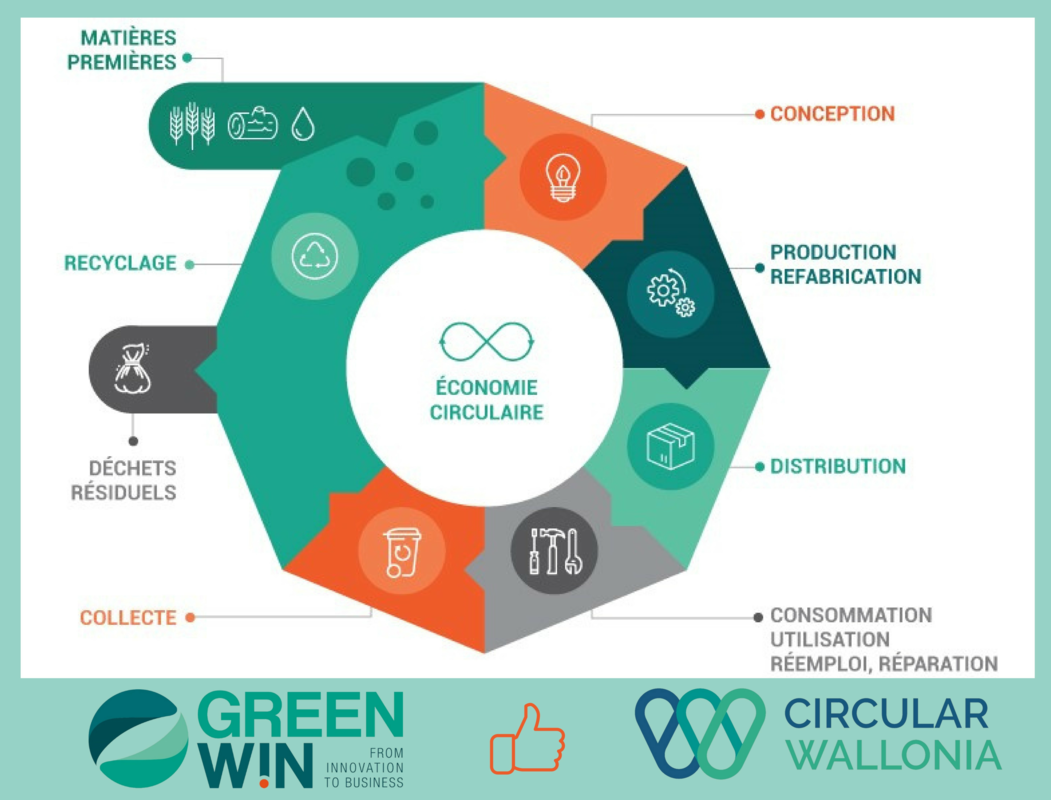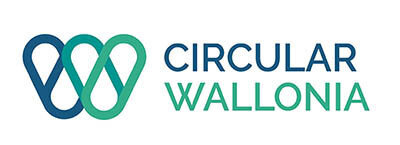
Transitioning towards a circular economy is a crucial step towards the creation of a regenerative economy that will push Wallonia out of a vicious circle of geo-dependence on a number of resources towards a virtuous circle that creates long term, eco-friendly and non-relocatable jobs, and opportunities.
The circular economy goes hand in hand with the other specificities of the cluster, namely :
> seeking carbon neutrality ;
> Life cycle analysis ;
> climate risk assessment.
If the recycling of waste is a key element of a circular economy, it is not the only one, far from it in fact.
GreenWin is designed to focus on the promotion and implementation of circular models of production and on the circular economy.
The circular economy is an integrating principle regrouping different approaches which, connected and in interaction, follow a common objective: the optimisation of the utilisation of resources as levers for the competitiveness of companies.
With this approach, the concepts of eco-conception and circular production, of reverse logistics, of industrial symbiosis and new economic models act in an integrated manner to allow for the industry to transition towards a circular economy.

The WALOSCRAP I and WALOSCRAP II projects are 2 examples : the WALOSCRAP I &II grant, implemented with SPW AGRICULTURE — Natural resources — Environment, focused on the establishment of viable channels in Wallonia. The observation is that for a recycling pathway to be viable, it is also vital to address, in parallel and in a coordinated manner, challenges that are not always of a technological order.
The different activities undertaken within the framework of the WaloSCRAP I & II projects allowed us to obtain a global image of the sector for each type of waste source studied.
In 2021, Wallonia signed a new convention with GreenWin, 3rd chapter of a Research -Action aimed at identifying pathways and enabling the creation of new value chains, new ways of transforming waste into real resources : WALLACE is dedicated to waste coming from the construction, renovation and demolition of buildings, from plastic waste and other types of waste that are considered of priority to the Plan wallon des Déchets-Ressources (PWD-R), or Walloon Waste-Resources Plan.
We can only speak of a real circular economy once we have evolved towards an economy where waste is truly and systematically perceived, valorised, and treated as a real resource.

Armed with this experience and expertise, GreenWin is naturally the front runner when it comes to the 'plastics' and 'construction' value chains within the framework of the Circular Wallonia Strategic Plan.
This is the culmination of the coordination of the 2 'Plastics' and 'Construction' task forces* by GreenWin that we continue to support and develop.
These task forces have resulted in some ten or so measures that we are committed to implementing and achieving.
© GreenWin Pole ASBL 2018 | Internal regulations | Terms and conditions | Realised by Webadev